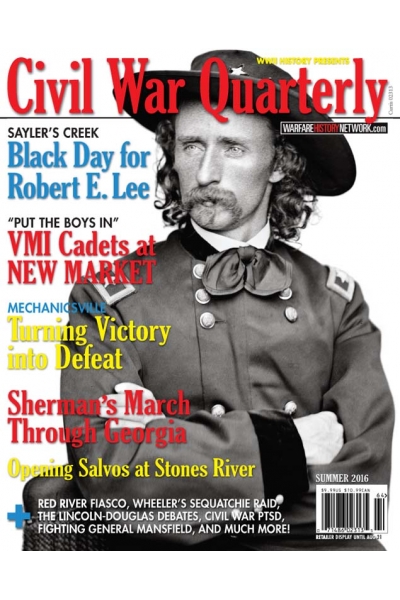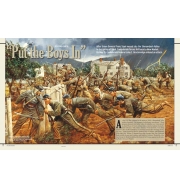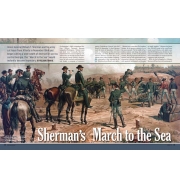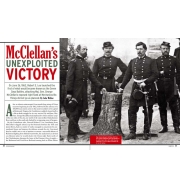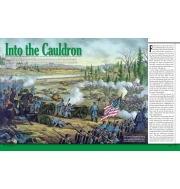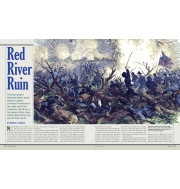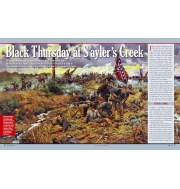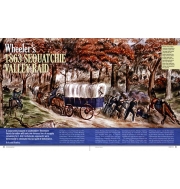Civil War Quarterly - Summer 2016 (Soft Cover)
Black Thursday at Sayler’s Creek
With Confederate forces in full retreat after the fall of Petersburg, alert Union forces charged through a gap in the Rebel column, capturing 8,000 soldiers at Sayler’s Creek. “My God!” said Robert E. Lee. “Has the army dissolved?” By David A. Norris
Thunder Tones
Stephen Douglas and Abraham Lincoln had been personal and political opponents for 20 years when they clashed for Douglas’s Illinois Senate seat in 1858. Their heated debates would quickly capture the attention of the nation. By Roy Morris Jr.
Red River Ruin
Politician-general Nathaniel Banks’s grand design to capture Shreveport floundered in the treacherous Red River in the spring of 1864. Union Admiral David Porter, too, was left high and dry. By Michael E. Haskew
McClellan’s Unexploited Victory
On June 26, 1862, Robert E. Lee launched the first of what would become known as the Seven Days Battles, attacking Maj. Gen. George McClellan’s exposed right flank at Mechanicsville. Things did not go as planned. By John Walker
Wheeler’s 1863 Sequatchie Valley Raid
A Union army trapped in southeastern Tennessee faced starvation with only one tenuous line of resupply remaining to it. And Confederate opponents were determined to eliminate this path of deliverance. By Arnold Blumberg
Sherman’s March to the Sea
Union General William T. Sherman and his army cut loose from Atlanta in November 1864 and began cutting a wide swath of destruction across central Georgia. The “March to the Sea” would instantly become legendary. By William Stroock
“Put the Boys In”
After Union General Franz Sigel moved into the Shenandoah Valley in the spring of 1864, Confederate forces fell back to New Market. On May 15, Confederate General John C. Breckinridge ordered an attack. By Pedro Garcia
Into the Cauldron
On the last day of December 1862, Confederate forces under General Braxton Bragg launched a surprise attack on Maj. Gen. William Rosecrans’s Army of the Cumberland at Stones River, Tennessee. By Joshua Shepherd
Editorial
Continued French meddling in Mexico almost led to a post-Civil War confrontation with the United States.
Soldiers
When Union General Joseph Mansfield fell at Antietam, he became the oldest general on either side to be killed in combat.
Medicine
Extreme homesickness, termed “nostalgia” during the Civil War, often killed more soldiers than enemy bullets. Some literally died to get home.
Your Review: Note: HTML is not translated!
Rating: Bad Good
Enter the code in the box below:

 Bestsellers
Bestsellers









 Our Featured
Our Featured